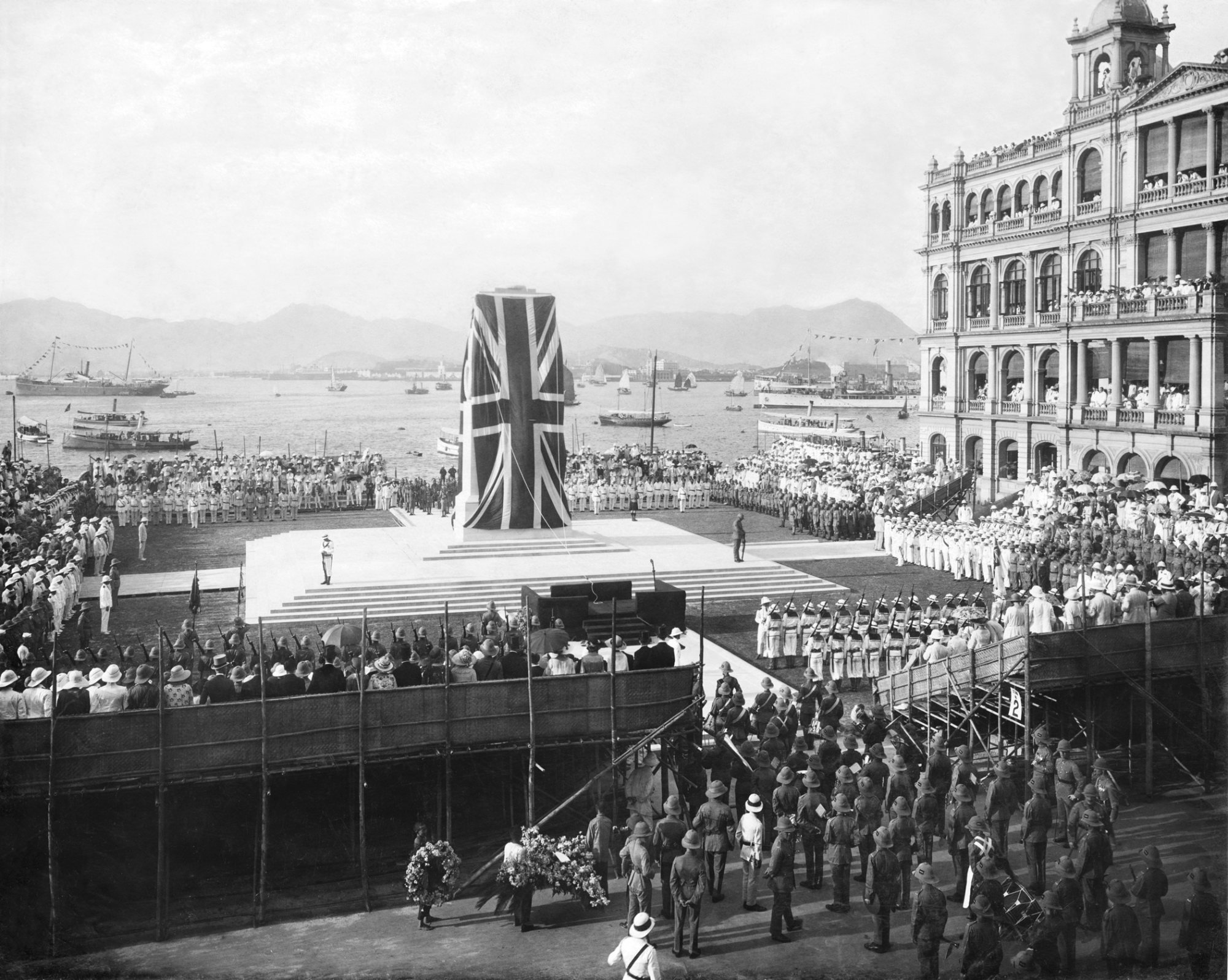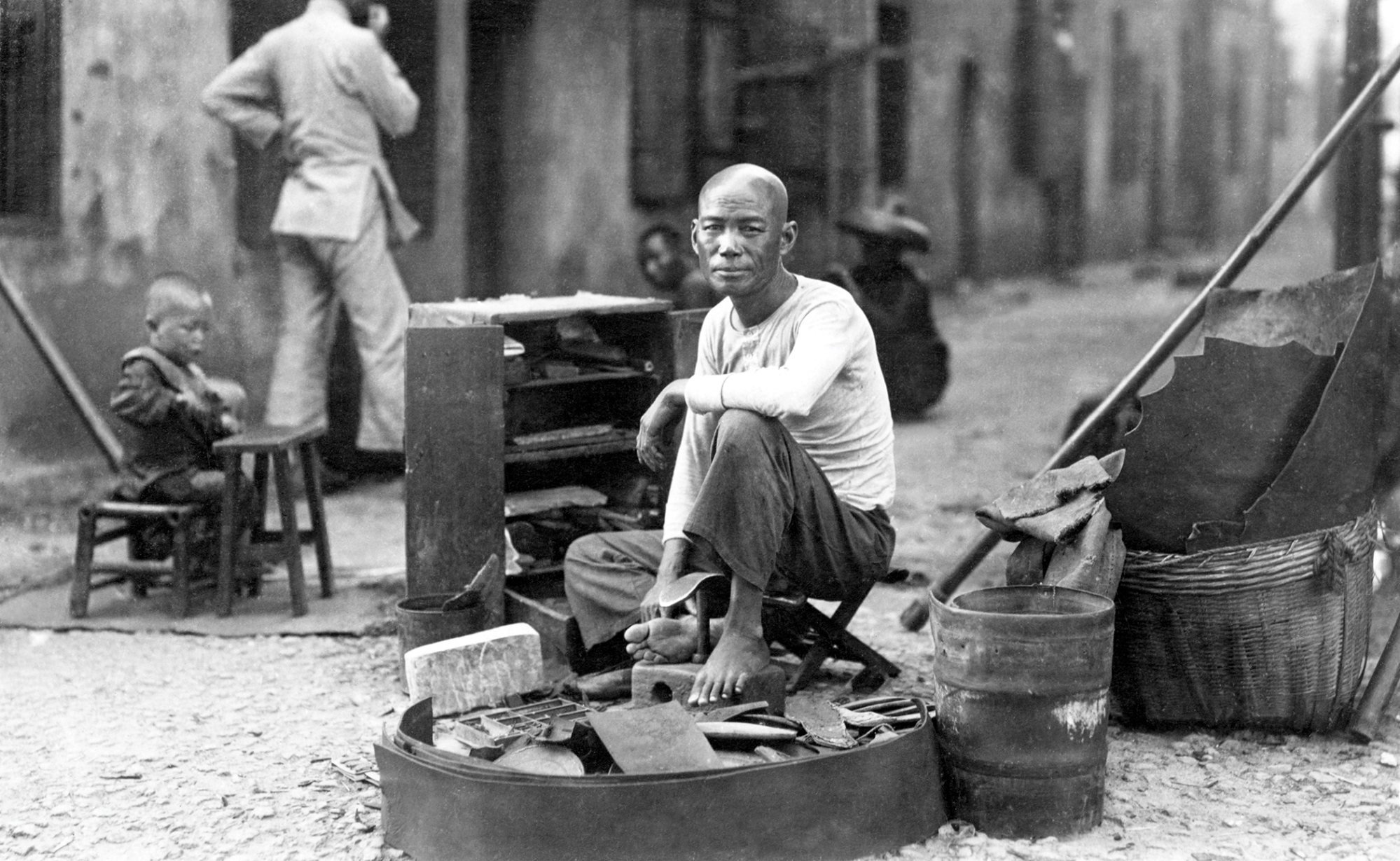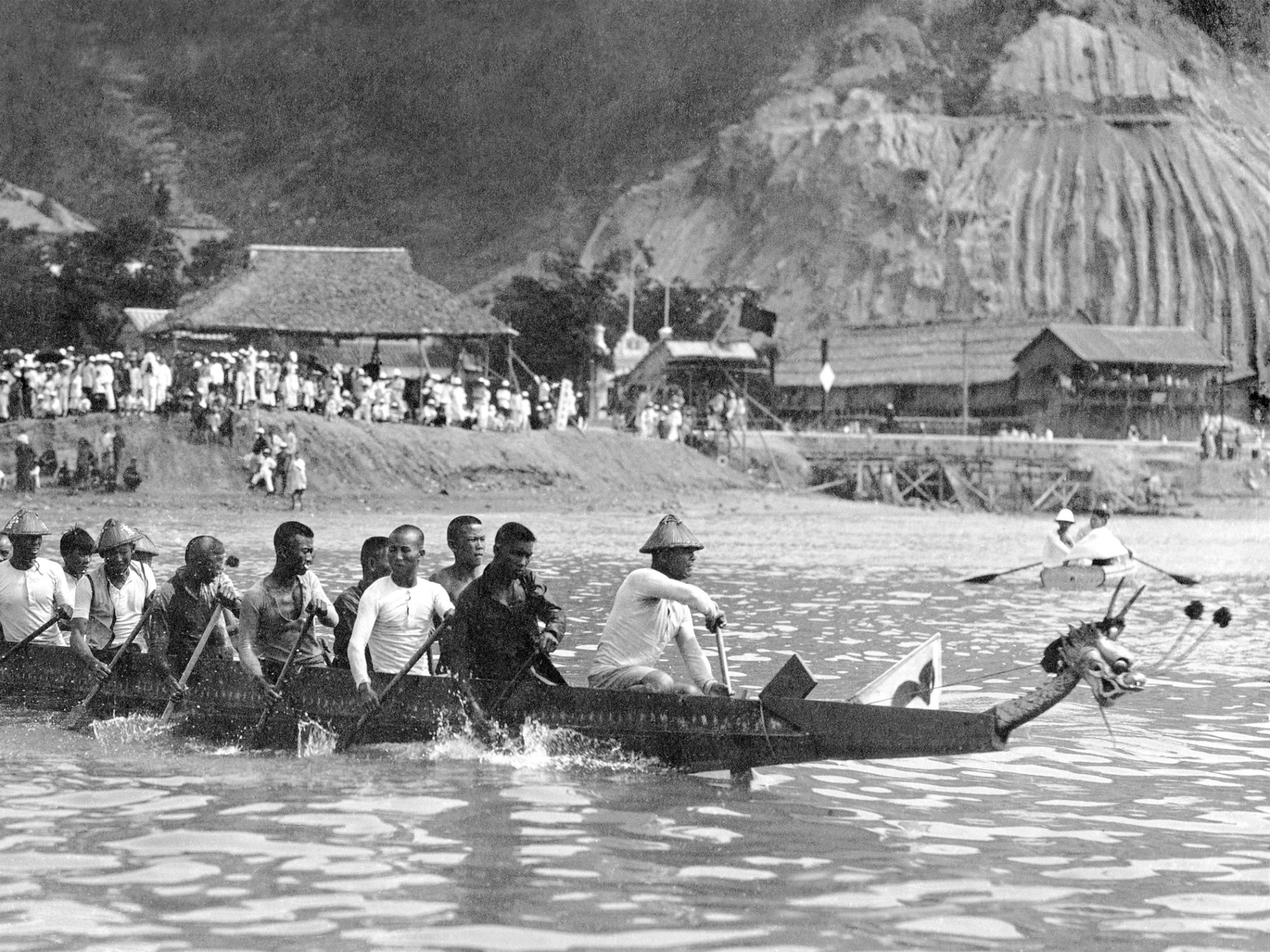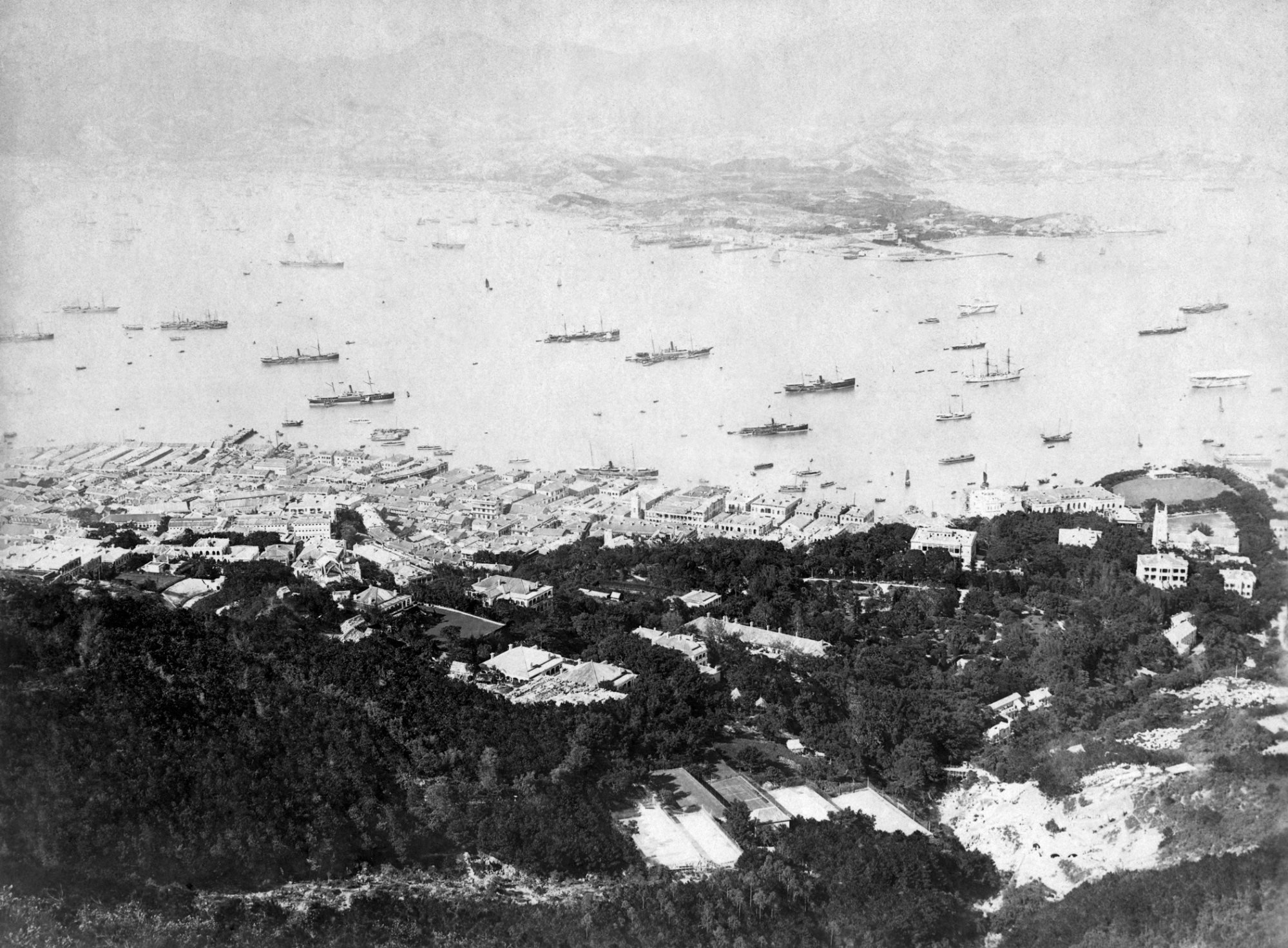He settled down, married a Hongkonger called Grace and had two daughters. In 2009, he founded a website called Gwulo. You may have heard of it.

Now he is about to leave Hong Kong again. On July 21, a few weeks after his 60th birthday, he and Grace will depart for Milford Haven, in West Wales, where he grew up and where his mother, aged 92, still lives. His daughters are already studying in England.

He will then become one of the thousands of British residents who, since 1841, have come, stayed a while, eventually left and whose photographs fill Gwulo’s pages.
Bellis, a modest man with a frequent smile, is determined not to be sentimental about his place in this history.
“People say, ‘Oh, you must really love Hong Kong to have built this website’. And I try and explain that I do love Hong Kong but all of this happens out of curiosity, a meandering here and there.
“It was never done to celebrate Hong Kong. There has never been a grand plan.”
He agrees that if he had moved to, say, Uzbekistan, he would probably have created exactly the same thing. For the foreseeable future, he is going to continue as Gwulo’s administrator but he may set up an equivalent in Wales.
“If I tap into some seam of curiosity in what’s around me in Pembrokeshire [the Welsh county in which Milford Haven is located], if I find something and need to tell someone and people start joining in …” Bellis says.
If a young person wanted to do this, it would have to be as a hobby
Batgung (Cantonese for “nosy guy”) had originally positioned itself, rather like an 18th-century English novel, as a site that “recounts the lives and times of two long-term expatriate gentlemen in Hong Kong, Mr Tall and Mr Balding”. Bellis was Mr Balding.
He wrote a few more history-themed articles. “Then a great thing happened – other people joined in.” Soon, one reader was wondering about a photograph he had: where might it have been taken?
Another reader, contributing under the name “moddsey”, had an answer: Aberdeen Praya Road. The wider conversation had begun.
In June 2009, Bellis bought the domain name gwulo.com.
You might suppose that gwulo, which means “old-fashioned”, was chosen as a deliberate echo of gweilo. But no.
“Gwulo was short, easy to pronounce and I just hadn’t made that connection,” Bellis says with a sigh. “I probably wouldn’t have chosen it if I had. I’m not very fond of the word gweilo.

“People write in and say, ‘I love your Gweilo website, I’ve been following it for years.’ And I think, Well, you should have worked out by now it’s not called that.”
It is true, however, that the website is mainly about, and for, expatriates. Bellis, who cannot read Chinese, is naturally aware of how niche his project is amid the internet’s Cantonese history groups. These tend to take an informal, quick-and-easy spontaneous-posting approach. Gwulo is more regimented.
From its earliest days, Bellis created three core sections: Places, People, Photos. Posters are encouraged to abide by these guidelines.
“People come to Gwulo and find it stuffy sometimes – put this here where it belongs, not there. It’s like Mum’s in the background saying, ‘Clean your room! Eat your veg!”
Mum is also in charge of unruly behaviour. Arguments do erupt. At first Bellis, who is quiet voiced and low-key, thought he would just stand back.
“Now I take more of the view that you’ve all come into my living room to have a friendly chat and, I’m sorry, but if you can’t behave you need to go away.”

He has many long-term contributors, including Mr Tall and “moddsey”. There are also devoted volunteers who have, for years, been transcribing almost a century of the colony’s pre-war jurors lists.
After a recent talk at a university, Bellis was told that AI could finish the project. “Because we’re almost at the end, I said we’re just going to continue doing it the old-fashioned way. But if I was starting from scratch, we could have done everything in a few days.”
It took decades of toil; AI could have done it in less than a week.
“While Carl Smith was writing his cards, he was building up a giant network in his head,” Bellis says. “Being presented with a huge transcribed document or data research doesn’t trigger those connections.”
He has often said he’s not a historian but agrees that “in a way” he has become one. He is “not great” at documenting his own family history. He does not keep a diary. Like the city Gwulo charts, however, Bellis has changed.
“I’m an introvert. If you put me in a room with five people, I’d find that horrible, I’m not very good with chit-chat. But a few weeks ago, I spoke in front of 250 people and told them what I’d done over the last 15 years. I know what I’m talking about, there’s none of that uncertainty.”

On June 12, Hong Kong’s Royal Geographical Society (RGS HK) branch is hosting a farewell gala evening for him at the Ladies’ Recreation Club, in Mid-Levels.
If only each person had contributed a single Hong Kong dollar … “One cent actually would have been fine,” he responds, ruefully. “If a young person wanted to do this, it would have to be as a hobby.”
For years, he and his wife have been “munching” their way through their savings. They used to joke about reaching a certain point in their budget when they would have to move to a cheaper British lifestyle. Now that moment has come.
When asked what he loved from the outset about Hong Kong, he says, “It was the excitement and – the feeling foreign. I’m a foreigner! I’m different! There’s quite a … vanity in that.
“I know when we get back to Britain, we’ll be in a small town in Wales and my wife’s going to stick out and I’m going to be a nobody. It’s going to be a funny switch.”

